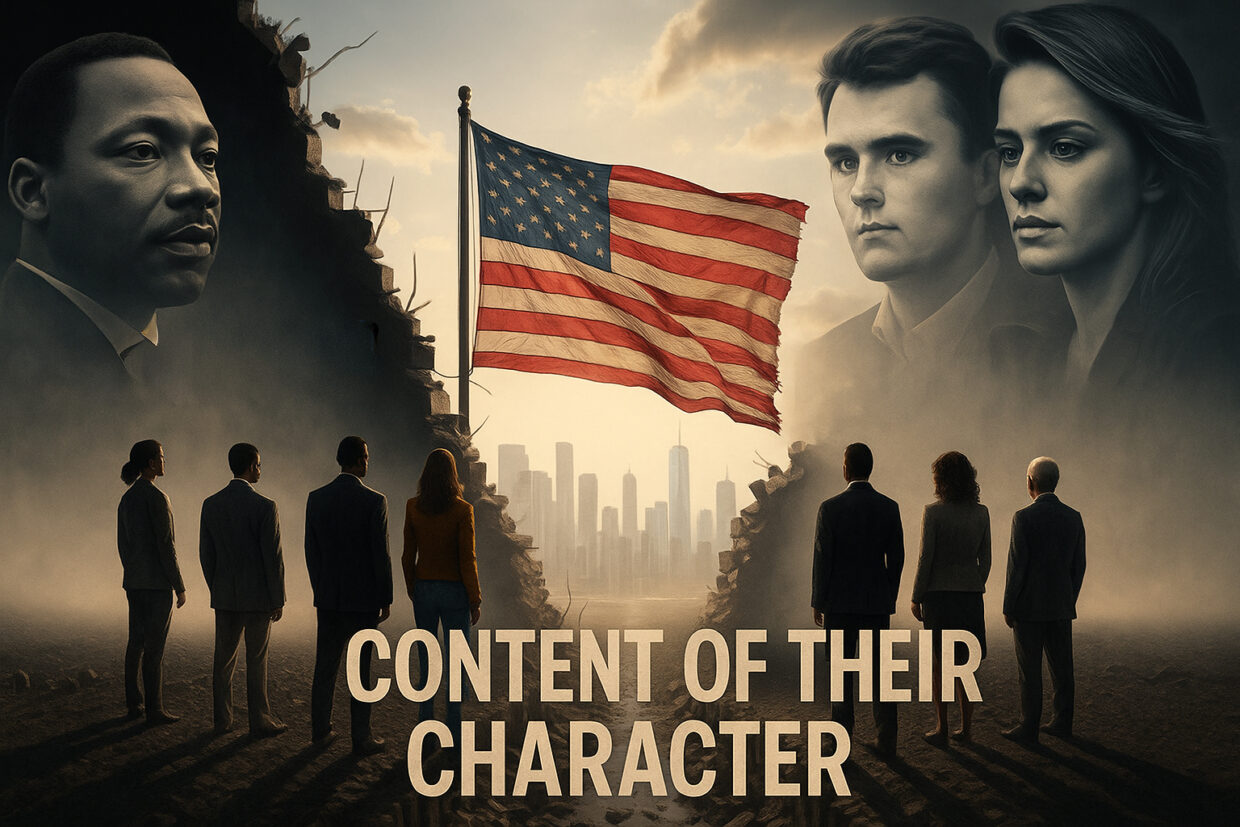Judged by the Content of Character
On August 28, 1963, Dr. Martin Luther King Jr. stood before a sea of people in Washington, D.C. and declared his dream: that his children would “not be judged by the color of their skin but by the content of their character.” It was more than a hope for racial equality — it was a call to measure every human being by the dignity of their actions, their humanity, and their moral worth.
In the decades since, America has faced moments that tested whether we could live up to that vision. The events of September 11, 2001, remain etched in our collective memory. Nearly 3,000 lives were taken in a single morning by an act of evil. And yet, in the days that followed, we saw something extraordinary: people of every background, race, and creed came together. Flags were raised. Blood was donated. Neighbors helped neighbors. For a moment, America seemed to embody Dr. King’s dream — united not by labels, but by shared character and courage.
I remember the Shock of 911, However, I Also Remember a Nation United
But unity is fragile. Recent events remind us how easily it fractures. On September 10, 2025, Charlie Kirk — a young leader, husband, and father — was assassinated while speaking at Utah Valley University. Political disagreements have always been a part of democracy, but political violence strikes at its very heart. To take a life because of beliefs is not only an assault on one man, but an attack on the principle that we settle disputes through words, not bullets. Whether one agreed with Charlie or not, he was a man who encouraged people to think rather than to follow blindly. Some are talking about the irony of him being an advocate for our right to bear arms; however, he is more an example that it is the person behind the gun that is the problem.
Just weeks earlier, another tragedy unfolded. Iryna Zarutska, a 23-year-old Ukrainian refugee who had fled war in search of safety, was stabbed to death on a Charlotte light-rail train. She was unarmed, posed no threat, and had no chance to defend herself. Her only “crime” was existing in the wrong place at the wrong time. For her grieving family, who had already endured displacement, America’s promise of safety was shattered. Watching the video of people sitting on the bus and not doing anything to help her is a further testament of how our sense of unity has been fractured in today’s society.
Stark Reminders
These stories — a political assassination and a senseless murder of a refugee — are not just headlines. They are reminders that we as a nation must ask: Are we living by the measure of character, or are we descending into a culture of hate, division, and dehumanization?
When Dr. King spoke of judging by character, he envisioned a society where we extend empathy even to those with whom we disagree, where every life has value regardless of race, nationality, or ideology. 9/11 showed us we are capable of unity in tragedy. But unity should not only arise in crisis — it must be chosen daily.
Today, we face a choice. Will we let political rage and unchecked violence define us? Or will we honor Dr. King’s dream by insisting on dignity, compassion, and respect as the true measures of a person’s worth?
The content of our national character will be revealed not just in how we mourn Charlie Kirk or Iryna Zarutska, but in how we choose to live after them — in whether we respond to hate with hate, or with a recommitment to the belief that every life matters and every voice deserves to be heard without fear. I want that world and life for my children and grandchildren, where they can feel safe walking in their hometown, where they are judged by their character. I want this for everyone.
